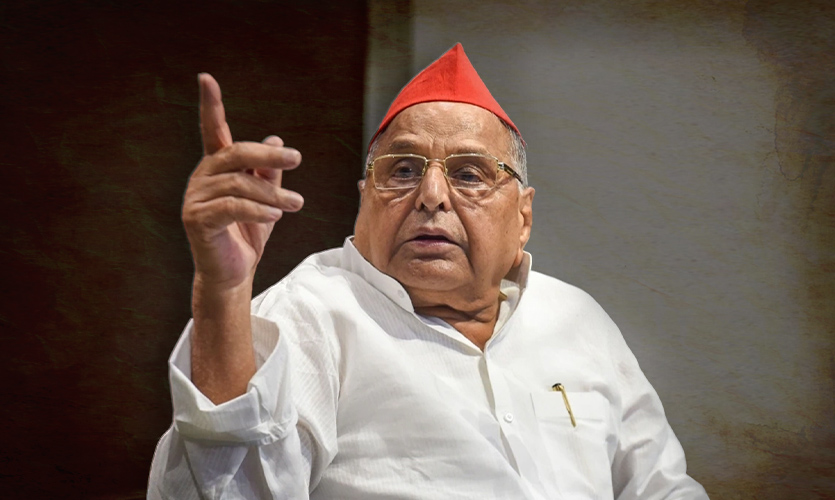Former Uttar Pradesh Chief Minister and Samajwadi Party founder Mulayam Singh Yadav died this morning, after suffering from a prolonged illness.
As a result of severe breathing difficulties, the 82-year-old was rushed to the ICU at Medanta Hospital. During his stay at the hospital, he was personally supervised by Naresh Trehan, director of Medanta Group. However, his condition deteriorated and he breathed his last at 8:16 am this morning.
Yadav was born in Saifai, Etawah district, on November 22, 1939, and had been an active politician for almost six decades. His involvement in politics began at the age of 15 after he came across the writings of socialist Ram Manohar Lohia. Yadav’s ideas and subsequent political career were strongly influenced by Lohia’s beliefs regarding the equality of people and other social justice issues. Agra University offered him the opportunity to earn his master’s degree in political science after he had originally planned to become a wrestler.
In the late 1980s and early 1990s, Yadav made headlines due to protests and agitations over the Mandal Commission, which was appointed to identify socially and educationally backward classes in India. Additionally, he had been imprisoned nine times while agitating for the rights and welfare of farmers, labourers, youths, students, minorities, and backward classes.
In 1992, after the Babri Masjid in Ayodhya was destroyed and rioting ensued, Yadav had a new lease on life as a politician. When the Congress government in New Delhi failed to protect the mosque, he and his newly formed Samajwadi Party emerged as advocates for the Muslim community.
Yadav became known for productively collaborating with not just his close friends, but also with his political rivals, when he formed an alliance with Bahujan Samaj Party (BSP) leader Mayawati in Uttar Pradesh. It was also an eventful brush with power at the centre for Yadav, along with becoming a major political force in Uttar Pradesh.
He served several terms in the Uttar Pradesh Legislative Assembly and Legislative Council from 1982 to 1985. Additionally, he served in the Eleventh, Twelfth, Thirteenth, and Fifteenth Lok Sabha as a MP, and was appointed as a MLA eight times.
He served as the chief minister of Uttar Pradesh three times: from December 5, 1989 to 24 January 1991; from December 5, 1993 to June 3, 1996; and from August 29, 2003 to May 11, 2007. Yadav almost won the position of prime minister in 1996, although Janata Dal (Secular) leader HD Deve Gowda overshadowed him by becoming the United Front coalition government’s consensus candidate. Yadav was appointed as the minister of defence during Gowda’s administration. Though originally assuring Congress leader Sonia Gandhi of his party’s support, Yadav ultimately opted not to support her in 1999 following the fall of the Atal Bihari Vajpayee administration at the national level.
Mulayam Singh Yadav was held in high regard by all political parties, and was well-known among leaders who were aware of the political climate in Uttar Pradesh and across the nation. Despite being unable to participate in national politics for the past few years due to his illness, he was seen as a crucial part of the opposition. He was affectionately referred to as “netaji” by party members and leaders.
The Yadav family has been split into two quarrelling groups ever since Akhilesh Yadav was elected the chief minister of Uttar Pradesh in 2012. Akhilesh is the leader of one of the factions, while SP national general secretary Ram Gopal Yadav and his father’s cousin Shivpal Yadav are on the other side. Mulayam was adjoined with the latter group.
In addition to being an experienced politician, Mulayam Singh Yadav has also worked in coalition governments. He received guidance from industry veterans like Lohia and Raj Narain. When he made the decision to stand down in 2012, his son Akhilesh took over, but the conflict between them got heated as the 2017 state election approached. When family divisions grew, he startled everyone in 2016 when he dismissed Akhilesh from the party, just before the pivotal election. After the father and son reconciled, Akhilesh became the Samajwadi Party’s new supremo.
Read more: Parts Of Northeast India To Continue With AFSPA For Another Six Months










